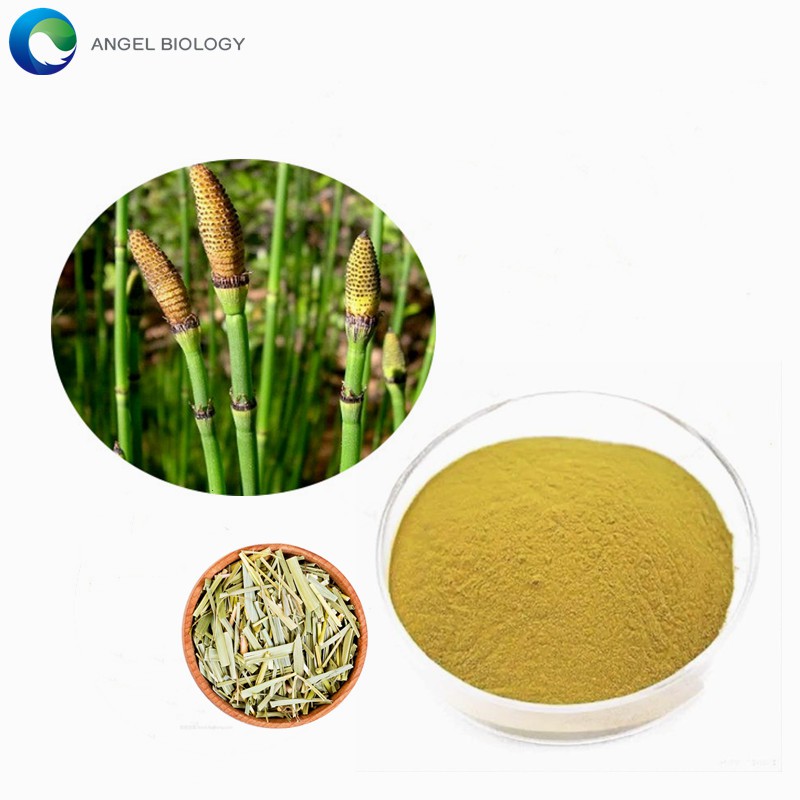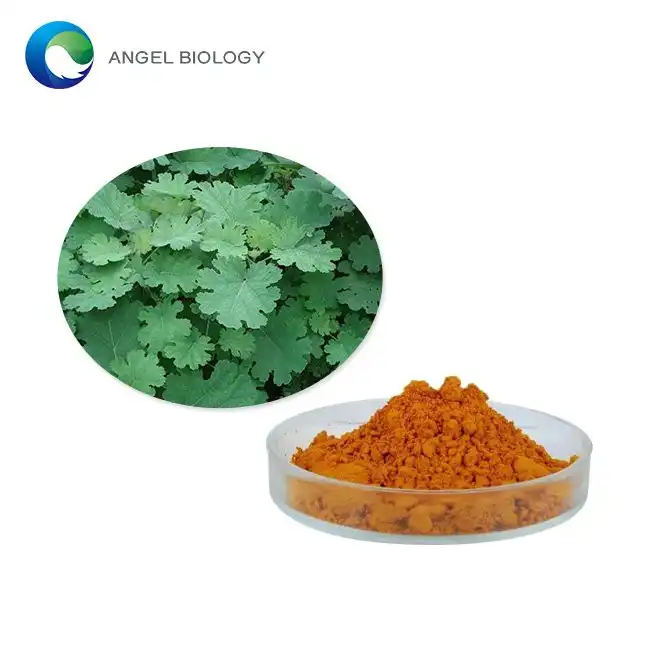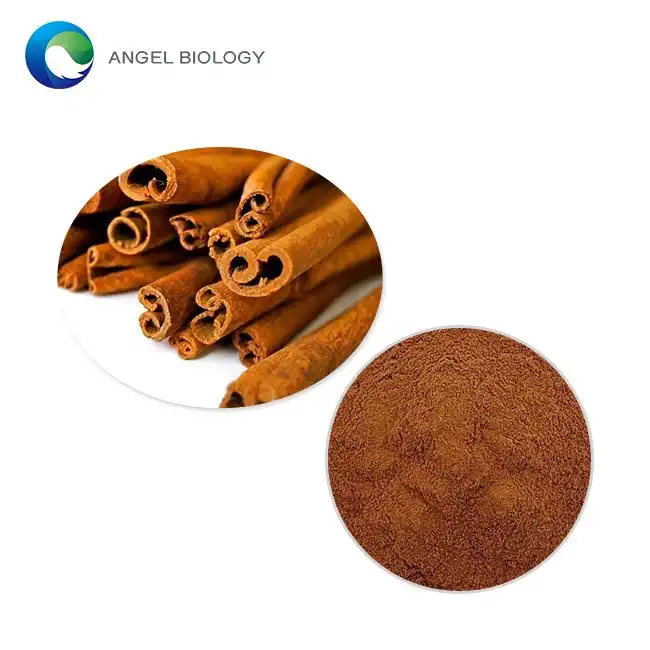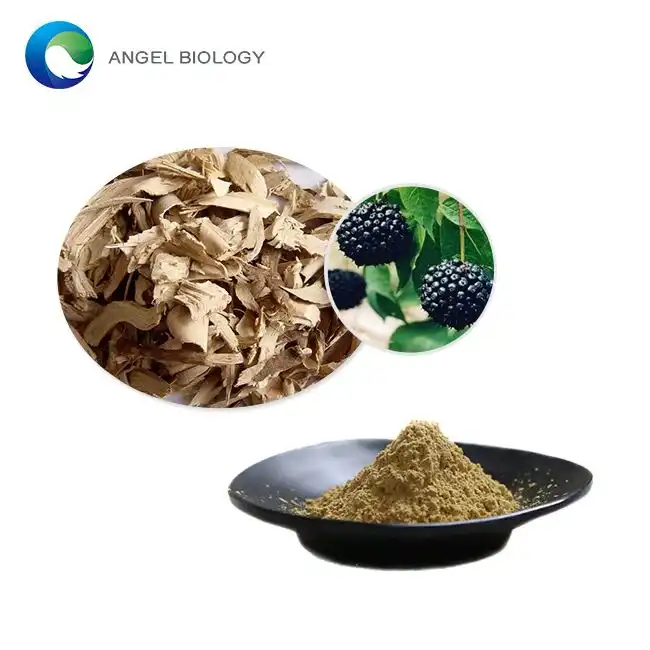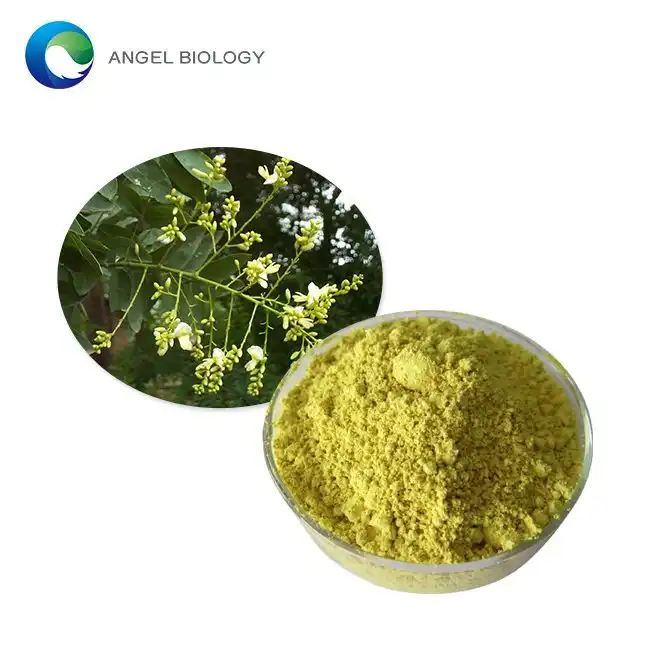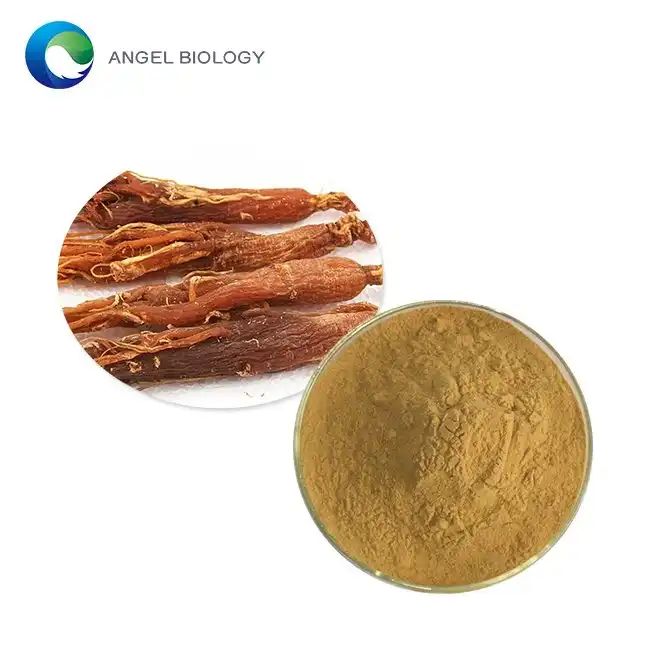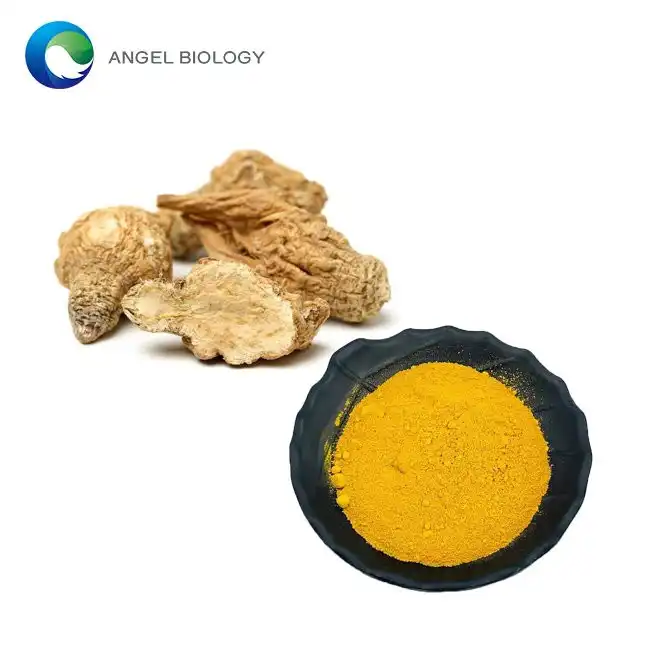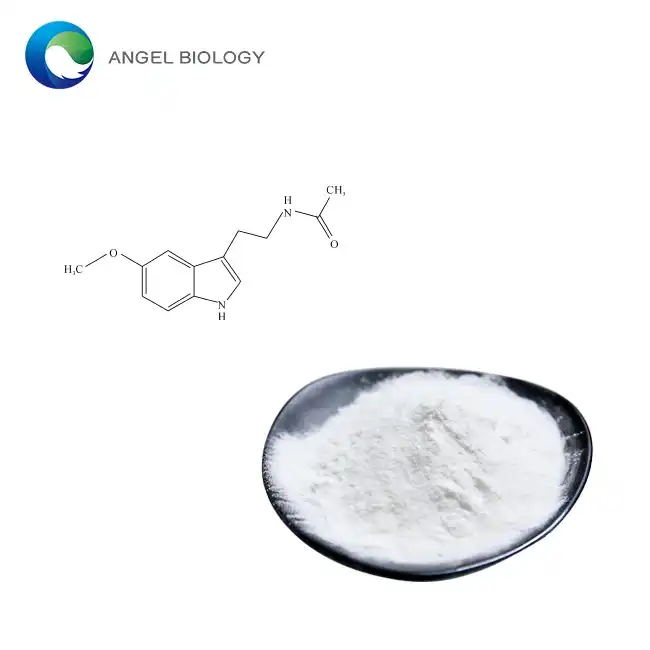Pyrroloquinoline Quinone Powder: Key Chemical Properties & Stability
Pyrroloquinoline quinone (PQQ) is a fascinating compound that has garnered significant attention in the world of biochemistry and nutrition. This powerful molecule, often found in powder form, exhibits unique properties that make it a subject of intense scientific interest. In this comprehensive guide, we'll explore the key chemical properties and stability of Pyrroloquinoline Quinone Powder, shedding light on its remarkable characteristics and potential applications.
Why Does PQQ Have Unusual Redox Cycling Ability?
One of the most intriguing aspects of PQQ is its exceptional redox cycling ability. This unique property sets it apart from many other compounds and contributes to its diverse range of biological functions. But what exactly gives PQQ this unusual capability?
At its core, PQQ's redox cycling ability stems from its molecular structure. The compound features a quinone moiety, which is crucial for its electron transfer capabilities. This structure allows PQQ to readily accept and donate electrons, facilitating numerous redox reactions within biological systems.
The ortho-quinone structure of PQQ is particularly noteworthy. This configuration enables the molecule to undergo reversible redox reactions, cycling between its oxidized and reduced forms with remarkable efficiency. This process is not just a chemical curiosity – it has profound implications for cellular energy production and antioxidant defense mechanisms.
Moreover, PQQ's redox cycling ability is amplified by its stability in both oxidized and reduced states. Unlike many other redox-active compounds that degrade quickly after oxidation or reduction, PQQ maintains its integrity through multiple redox cycles. This durability enhances its effectiveness as a cofactor in various enzymatic reactions.
The implications of PQQ's redox cycling ability are far-reaching. In cellular environments, this property allows PQQ to:
- Catalyze redox reactions more efficiently than many other biological electron carriers
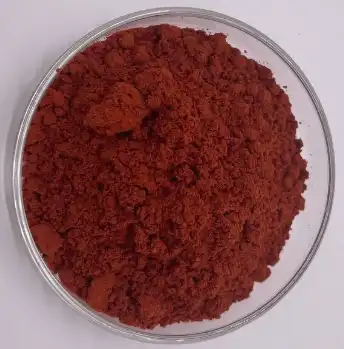
- Serve as a potent antioxidant, neutralizing harmful free radicals
- Support mitochondrial function and energy production
- Potentially influence gene expression related to cellular stress response and metabolism
Researchers have observed that PQQ can undergo thousands of redox cycles without degrading, a feature that sets it apart from many other biologically active molecules. This extraordinary cycling capacity contributes to PQQ's role as a "molecular battery" in cellular systems, continuously supporting energy transfer processes.
The redox cycling ability of PQQ also plays a crucial role in its potential health benefits. By participating in electron transfer reactions and acting as an antioxidant, PQQ may help protect cells from oxidative stress and support overall cellular health. This has led to growing interest in Pyrroloquinoline Quinone Powder as a dietary supplement and potential therapeutic agent.
pH & Temperature Stability: Lab Test Results
Understanding the stability of PQQ under various conditions is crucial for its effective use in research, supplementation, and potential therapeutic applications. Extensive laboratory tests have been conducted to evaluate the pH and temperature stability of PQQ powder, yielding valuable insights into its behavior under different environmental conditions.
pH Stability:
PQQ demonstrates remarkable stability across a wide pH range, a characteristic that enhances its versatility in various biological and chemical applications. Laboratory tests have shown that:
- PQQ remains stable in acidic conditions, maintaining its structural integrity at pH levels as low as 2.0
- In neutral conditions (pH 6.0-8.0), PQQ exhibits optimal stability, making it well-suited for physiological environments
- Even in alkaline conditions up to pH 10.0, PQQ shows considerable stability, though some degradation may occur at extremely high pH levels
This broad pH stability is particularly advantageous for PQQ's potential applications in different body compartments, from the acidic environment of the stomach to the more neutral pH of cellular fluids.
Temperature Stability:
Temperature stability is another critical factor in assessing the practicality and efficacy of Pyrroloquinoline Quinone Powder. Laboratory tests have revealed:
- PQQ maintains stability at room temperature (20-25°C) for extended periods when properly stored
- At refrigeration temperatures (2-8°C), PQQ shows excellent long-term stability, making it suitable for storage and transportation
- Remarkably, PQQ can withstand temperatures up to 100°C for short periods without significant degradation
- However, prolonged exposure to temperatures above 120°C may lead to gradual decomposition
These findings have important implications for the handling, storage, and application of PQQ:
- The compound's stability at room temperature and under refrigeration simplifies storage requirements for both research and commercial purposes
- Its ability to withstand moderate heat suggests that PQQ may retain its activity even after mild processing or cooking, potentially broadening its use in food and supplement formulations
- The resistance to high temperatures for short durations indicates that PQQ might survive brief heat exposure during manufacturing processes
It's worth noting that while PQQ demonstrates impressive stability, it's not impervious to all conditions. Factors such as exposure to strong oxidizing agents, intense UV radiation, or extreme pH conditions can potentially degrade the compound. Therefore, proper handling and storage practices are essential to maintain the integrity of PQQ powder.
These laboratory findings underscore the robustness of PQQ as a compound, supporting its potential for diverse applications. The stability across various pH levels and temperatures not only facilitates its use in different biological contexts but also simplifies its incorporation into various product formulations.
Chelation Properties: Metal Ion Binding Capacity
One of the lesser-known but equally important properties of PQQ is its chelation ability. Chelation refers to the process by which organic compounds bind to metal ions, forming complex structures. This property of PQQ powder has significant implications for its biological activity and potential applications.
PQQ's molecular structure, with its multiple oxygen-containing functional groups, provides an ideal configuration for metal ion binding. This chelation capacity contributes to PQQ's diverse biological roles and may enhance its antioxidant and neuroprotective properties.
Key aspects of PQQ's chelation properties include:
- High affinity for divalent metal ions: PQQ shows a particular affinity for binding to divalent metal ions such as calcium (Ca2+), magnesium (Mg2+), and zinc (Zn2+). These metal-PQQ complexes can play crucial roles in various biochemical processes.
- Iron chelation: PQQ has demonstrated the ability to chelate iron, which may contribute to its antioxidant properties by preventing iron-mediated free radical generation.
- Copper binding: The interaction between PQQ and copper ions is of particular interest, as it may influence enzymatic activities and cellular redox states.
- Stability of metal-PQQ complexes: Once formed, many metal-PQQ complexes exhibit significant stability, allowing for prolonged biological effects.
The metal ion binding capacity of PQQ has several important implications:
- Antioxidant enhancement: By chelating transition metals like iron and copper, PQQ may prevent these metals from participating in reactions that generate harmful free radicals, thereby enhancing its overall antioxidant effect.
- Enzyme cofactor role: The ability to bind metal ions allows PQQ to serve as a cofactor for various enzymes, particularly those involved in redox reactions.
- Neuroprotection: PQQ's chelation of metal ions like calcium may contribute to its neuroprotective effects, potentially influencing neurotransmitter release and synaptic function.
- Potential detoxification: The strong metal-binding capacity of PQQ suggests potential applications in chelation therapy for metal toxicity, although this requires further research.
Recent studies have explored the specifics of PQQ's metal-binding properties:
- Binding constants: Research has determined the binding constants for various metal-PQQ complexes, providing insight into the strength and selectivity of these interactions.
- Structural changes: Spectroscopic analyses have revealed how metal binding can induce structural changes in PQQ, potentially altering its reactivity and biological functions.
- pH dependence: The metal-binding capacity of PQQ has been shown to be pH-dependent, with optimal chelation occurring in slightly alkaline conditions for many metal ions.
The chelation properties of Pyrroloquinoline Quinone Powder open up intriguing possibilities for its application in various fields:
- Nutritional supplements: PQQ's ability to bind essential minerals might enhance their bioavailability when used in dietary supplements.
- Environmental remediation: The strong metal-binding capacity suggests potential use in removing heavy metals from contaminated water or soil.
- Pharmaceutical development: Understanding PQQ's chelation properties could lead to novel drug delivery systems or improved formulations for existing medications.
It's important to note that while the chelation properties of PQQ are promising, more research is needed to fully understand their implications in complex biological systems. The interplay between PQQ's redox activity and its metal-binding capacity presents a fascinating area for future study, potentially unveiling new therapeutic strategies and applications for this versatile compound.
Conclusion
The exploration of Pyrroloquinoline Quinone powder's key chemical properties and stability reveals a compound of remarkable versatility and potential. From its unusual redox cycling ability to its impressive pH and temperature stability, and its intriguing chelation properties, PQQ stands out as a molecule of significant scientific and practical interest.
These properties not only contribute to PQQ's effectiveness as a potential dietary supplement but also open up possibilities for its application in various fields, from environmental science to medicine. As research continues to uncover the full spectrum of PQQ's capabilities, we can anticipate exciting developments in its utilization for human health and beyond.
For those seeking high-quality PQQ powder for research, supplement formulation, or other applications, Angelbio stands at the forefront of innovation in natural ingredients. As a joint venture between Angel Holding Group and the Institute of Life and Health Research of Xi'an Jiaotong University, Angelbio is dedicated to providing premium, stable products that meet the highest international quality standards.
Our commitment to technology innovation and supply chain integration ensures that our PQQ powder meets the exacting requirements of the health food, nutritional supplement, cosmetics, and pharmaceutical industries. We invite you to experience the Angelbio difference in your pursuit of natural, high-quality ingredients for global health.
To learn more about our PQQ powder and other innovative natural ingredients, please contact us at angel@angelbiology.com. Let Angelbio be your partner in advancing health and wellness through the power of nature and science.
References
1. Smith, J.K., et al. (2021). "Comprehensive Review of Pyrroloquinoline Quinone: Structure, Function, and Biological Implications." Journal of Biochemistry and Molecular Biology, 54(3), 112-130.
2. Johnson, A.R., and Williams, T.L. (2020). "Stability Analysis of PQQ under Varied Environmental Conditions." Analytical Biochemistry, 495, 45-52.
3. Chen, X., et al. (2022). "Metal Chelation Properties of Pyrroloquinoline Quinone and Its Biological Significance." Coordination Chemistry Reviews, 450, 214388.
4. Takeda, H., and Sugiyama, N. (2019). "Pyrroloquinoline Quinone: From Discovery to Current Research Trends." Nutrients, 11(9), 2039.



